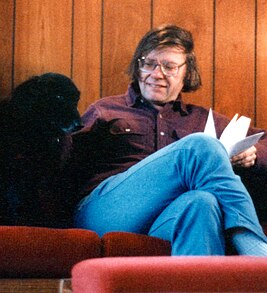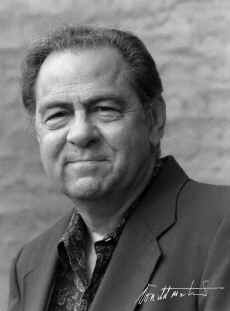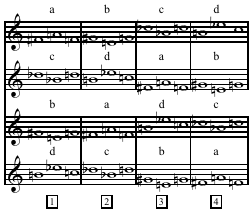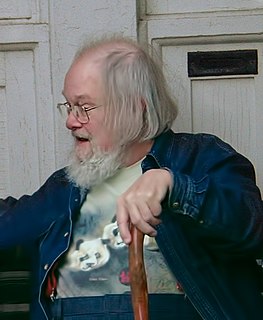Related Research Articles

Milton Byron Babbitt was an American composer, music theorist, mathematician, and teacher. He is particularly noted for his serial and electronic music.

Benjamin Aaron Boretz is an American composer and music theorist.
Mario Davidovsky was an Argentine-American composer. Born in Argentina, he emigrated in 1960 to the United States, where he lived for the remainder of his life. He is best known for his series of compositions called Synchronisms, which in live performance incorporate both acoustic instruments and electroacoustic sounds played from a tape.

Donald James Martino was a Pulitzer Prize winning American composer.
Richard G. Swift was an American composer and music theorist.

Composition for Four Instruments (1948) is an early serial music composition written by American composer Milton Babbitt. It is Babbitt's first published ensemble work, following shortly after his Three Compositions for Piano (1947). In both these pieces, Babbitt expands upon the methods of twelve-tone composition developed by Arnold Schoenberg. He is notably innovative for his application of serial techniques to rhythm. Composition for Four Instruments is considered one of the early examples of “totally serialized” music. It is remarkable for a strong sense of integration and concentration on its particular premises—qualities that caused Elliott Carter, upon first hearing it in 1951, to persuade New Music Edition to publish it.
Carlton Gamer is an American composer and music theorist. He has taught at Colorado College, Princeton University, and the University of Michigan. He studied at Northwestern University and Boston University and privately with Roger Sessions.
Edward Toner Cone was an American composer, music theorist, pianist, and philanthropist.
The Fourth String Quartet by American composer Elliott Carter was composed in 1985–86 in New York City and Rome, and completed in June 1986. It was premiered on September 17, 1986 at Festival Miami, University of Miami, Florida by the Composers String Quartet.
John Melby is an American composer.
Jason Eckardt is an American composer. He began his musical life playing guitar in heavy metal and jazz bands and abruptly moved to composing after discovering the music of Anton Webern.

Elaine Barkin née Radoff is an American composer, writer, and educator.
Composition for Twelve Instruments is a serial music composition written by American composer Milton Babbitt for flute, oboe, clarinet, bassoon, horn, trumpet, harp, celesta, violin, viola, cello, and double bass. In it Babbitt for the first time employs a twelve-element duration set to serialize the rhythms as well as the pitches, predating Olivier Messiaen's (non-serial) "Mode de valeurs et d'intensités", but not the Turangalîla-Symphonie (1946–48), in which Messiaen used a duration series for the first time in the opening episode of the seventh movement, titled "Turangalîla II"..
String Quartet No. 2 (1954) is the second of six string quartets by the American composer Milton Babbitt.
String Quartet No. 3 is the third of six chamber-music works in the string quartet medium by the American composer Milton Babbitt.
String Quartet No. 4 is the fourth of six chamber-music works in the string quartet medium by the American composer Milton Babbitt.
String Quartet No. 6 is the last of six chamber-music works in the string quartet medium by the American composer Milton Babbitt.
All Set, for jazz ensemble, is a 1957 composition for small jazz band by the American composer Milton Babbitt.

James K. Randall was an American composer, music theorist, and early adopter of electronic music. At the time of his death he was Professor of Music Emeritus at Princeton University.
Edgar Warren Williams is an American composer, conductor, and music theorist.
References
Sources
- Babbitt, Milton. 1990. "Quartet No. 5". Program note in the booklet accompanying Three American String Quartets. Music & Arts CD-606. Berkeley: Music and Arts Program of America.
- Lake, William E. Spring–Summer 1986. "The Architecture of a Superarray Composition: Milton Babbitt's String Quartet No. 5". Perspectives of New Music 24, no. 2: 88–111.
- Mead, Andrew W. 1984. "Recent Developments in the Music of Milton Babbitt". Musical Quarterly 70 (1984): 310–331.